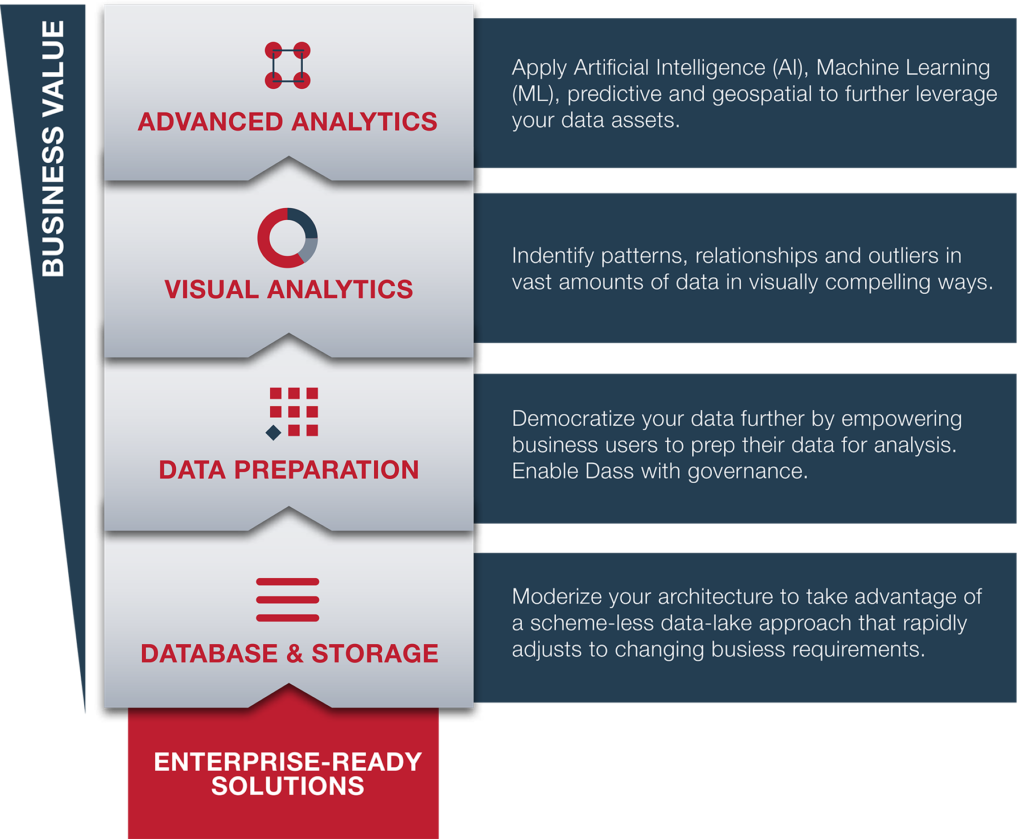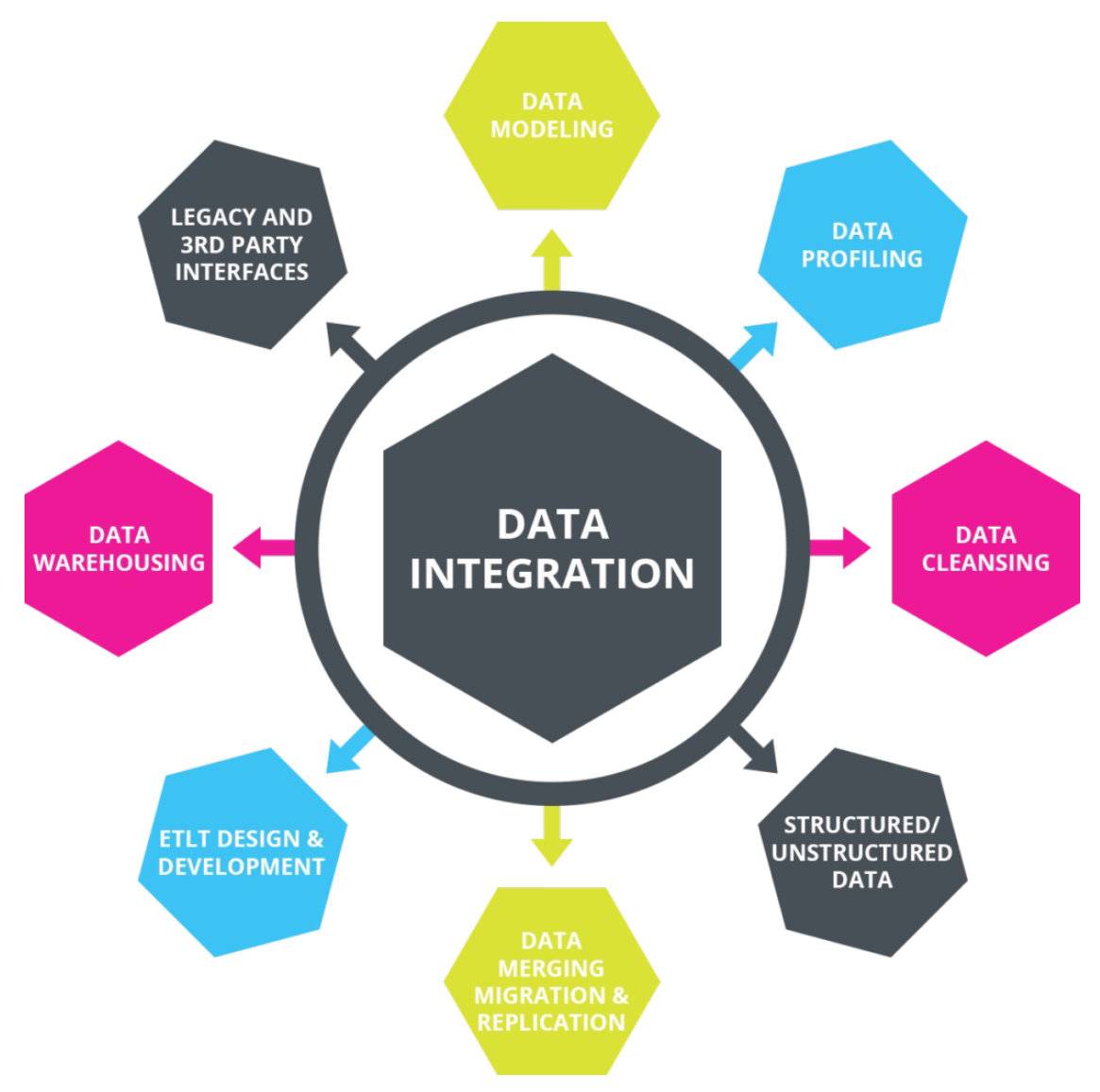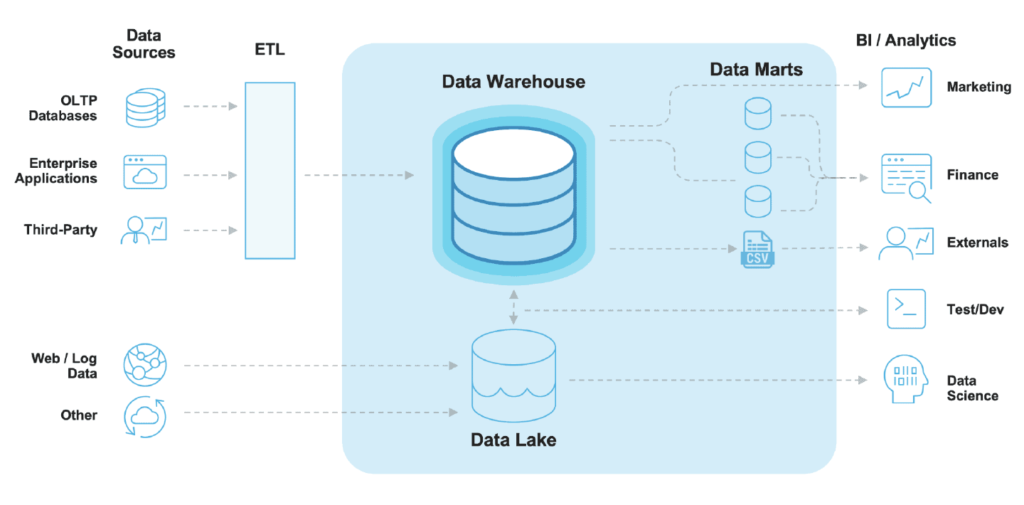Building Foundations for Successful and Scalable AI
We Begin with Business Strategy and Establishing Requirements
Data Integration is Critical to Achieving Business Goals for AI
Process Improvement is Essential to Scale Current and Future AI Use Cases
Prioritizing Governance Ensures Data Security, Legal, and Ethical Standards are Followed
Check Out Our Healthcare Example
- Business Strategy
- AI systems use vast amounts of patient data to improve diagnoses or predict health trends
- While ensuring data quality and accessibility, effective data management protocols must be implemented
- These protocols provide data usage, quality control, privacy, and security guidelines
- Data Integration
- This could mean integrating data from different departments like radiology, pathology, and general patient records.
- Unique challenges may arise related to data acquisition, demanding strategies to gather relevant health data without infringing on patient privacy rights
- Process Improvement
- There must be clear and quantifiable targets for process transformation
- These could be specific reductions in patient wait times or increased daily patient appointments to enhance patient experience and boost overall efficiency
- There must be clear and quantifiable targets for process transformation
- Prioritize Governance
- The technology must do more than provide accurate results; it must also illuminate the path it took to reach those conclusions
- Physicians, other healthcare providers, and patients must understand how the AI system arrived at a particular diagnosis or prediction to trust its outcomes
- This principle, known as “explainable AI,” fosters trust and acceptance, which are paramount in a field as sensitive as healthcare.
- AI applications must comply with strict data privacy and security regulations
- From the Health Insurance Portability and Accountability Act (HIPAA) to the General Data Protection Regulation (GDPR), these legal frameworks protect customer data and ensure the ethical use of AI



